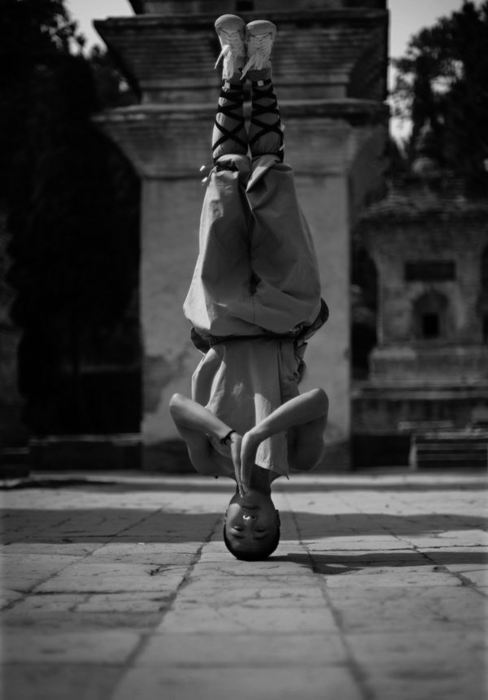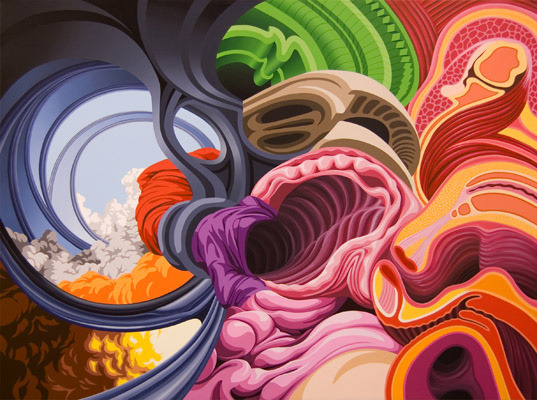
The Buddha was right that desire is what chains us.
Lao-Tsu was right that desire distracts us from the Tao, the hidden mystery/source of being.
Jesus was right that the desire for power, greed, and hedonistic pleasure diminishes the quality of being, so much so that it would be better to lose an eye or hand than experience the fiery disintegration of inflated desire.
Desire marries itself to power and control.
To want or desire is to believe that we do not possess something but that we ought to.
To take possession is to enslave and overpower something else.
The problem is that desire enslaves us. It does not give anything but only takes away.
You cannot lose what you do not desire.
To desire, possess, and control steals away contentment, gratitude, and fulfillment.
To let go of desire and possession, to experience the pure "givenness" of reality and the pure reception of human experience makes possible these things: contentment without longing, fulfillment without possessing.
We are already possessed by the world and its source.
We do not even possess ourselves.
But in a sense, we possess all insofar as it is given to us in experience.
But we do not control what we do with it.
We only control our responsiveness, our desire.
Power does not give control.
It takes it away and deepens the abyss in our spirit.
That is the paradox of power.
Giving up control does not take anything away.
It deepens our primordial integration with reality by removing the illusive barrier of power and possession.
To embrace reality without controlling or possessing opens the possibility of love.
Love is the selfless relation to the Other.
Movement toward the Other, not predicated upon a striving to possess it as an objectified other but upon wonder and amazement before the ineffability of the Other, results in the unfolding of love.
Love is the only purpose of relation to the Other.
Love is the only possibility of true relation to the Other.
But power is the enemy of Love.
Power is the abuse of pure givenness, a meritorious corruption from economic thinking.
Love is the acceptance of pure givenness, and participation within it.
Love is the source of fulfillment.
It is the unconditionality of givenness.
It is the heart of blind and wild reciprocity.
It is the source of being itself.
Lao-Tsu was right that desire distracts us from the Tao, the hidden mystery/source of being.
Jesus was right that the desire for power, greed, and hedonistic pleasure diminishes the quality of being, so much so that it would be better to lose an eye or hand than experience the fiery disintegration of inflated desire.
Desire marries itself to power and control.
To want or desire is to believe that we do not possess something but that we ought to.
To take possession is to enslave and overpower something else.
The problem is that desire enslaves us. It does not give anything but only takes away.
You cannot lose what you do not desire.
To desire, possess, and control steals away contentment, gratitude, and fulfillment.
To let go of desire and possession, to experience the pure "givenness" of reality and the pure reception of human experience makes possible these things: contentment without longing, fulfillment without possessing.
We are already possessed by the world and its source.
We do not even possess ourselves.
But in a sense, we possess all insofar as it is given to us in experience.
But we do not control what we do with it.
We only control our responsiveness, our desire.
Power does not give control.
It takes it away and deepens the abyss in our spirit.
That is the paradox of power.
Giving up control does not take anything away.
It deepens our primordial integration with reality by removing the illusive barrier of power and possession.
To embrace reality without controlling or possessing opens the possibility of love.
Love is the selfless relation to the Other.
Movement toward the Other, not predicated upon a striving to possess it as an objectified other but upon wonder and amazement before the ineffability of the Other, results in the unfolding of love.
Love is the only purpose of relation to the Other.
Love is the only possibility of true relation to the Other.
But power is the enemy of Love.
Power is the abuse of pure givenness, a meritorious corruption from economic thinking.
Love is the acceptance of pure givenness, and participation within it.
Love is the source of fulfillment.
It is the unconditionality of givenness.
It is the heart of blind and wild reciprocity.
It is the source of being itself.

